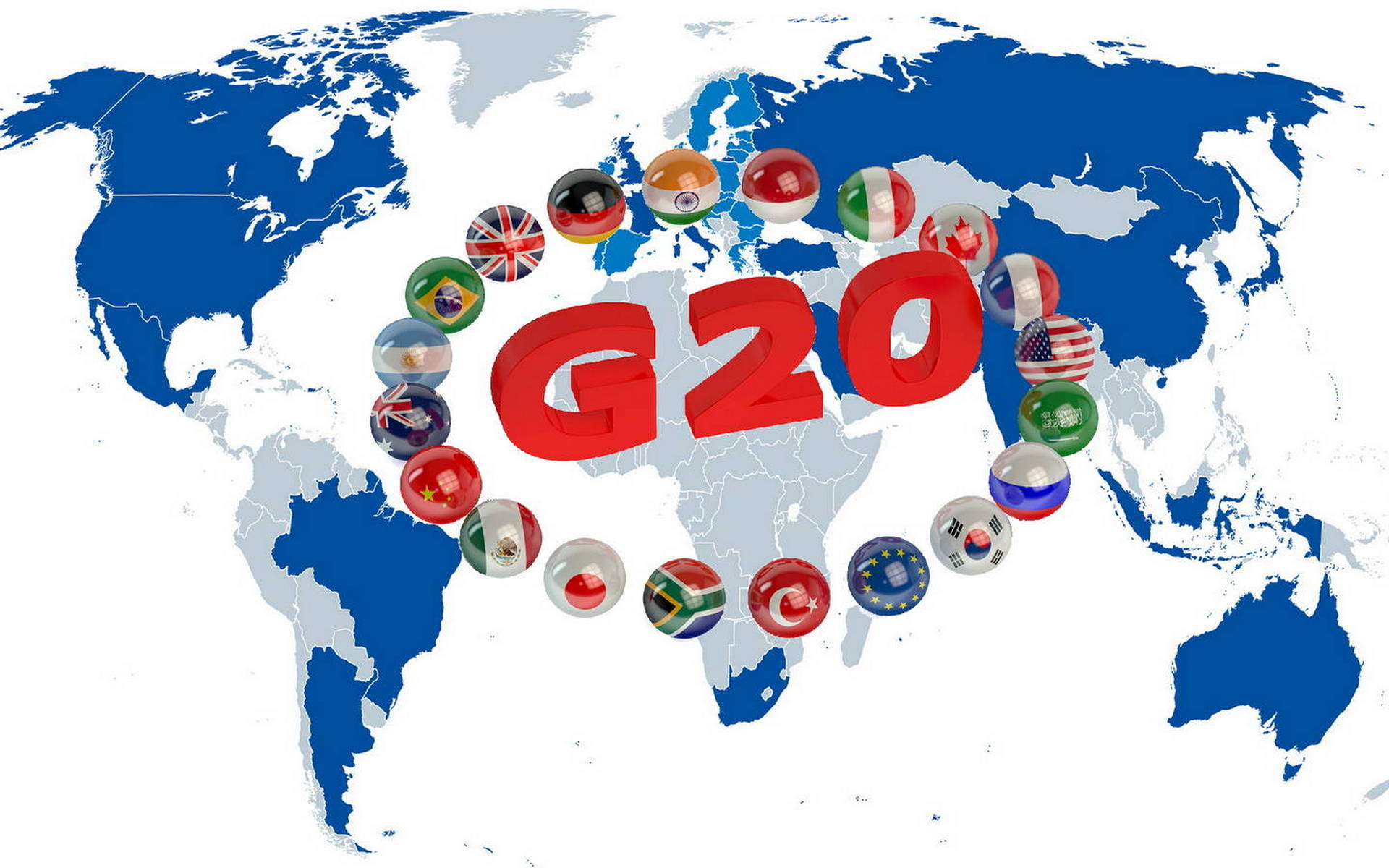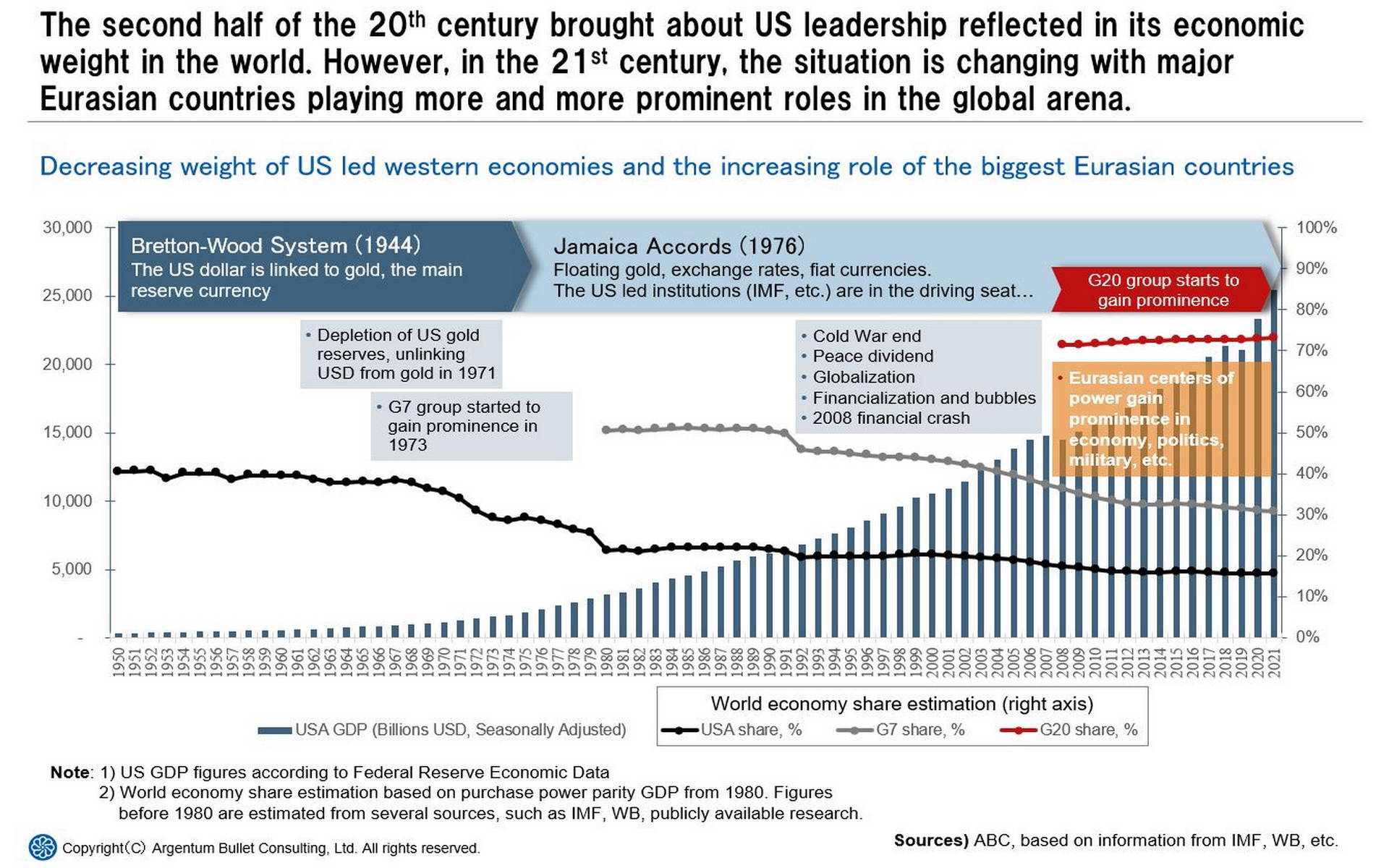Eurasia rebalancing is what we are observing right now in the world. This is a tectonic shift in the global power balance. Such shifts often cause geopolitical instability, and this is exactly what we observe right now. To properly deal with this instability and to avoid the worst outcomes we need to understand the underlying factors of this situation.
What we mean by Eurasia rebalancing is the fact that practically unilateral global domination of the North-American power center since the end of World War II has been slowly diluting, while such traditional Eurasian power centers as China, India, and Russia as well as other influential countries have been gaining prominence on the world stage. BRICS block formation is one of the visible signs of this rebalancing.
One of the visible signs of this trend is the decreasing share of the American economy in the economy of the world. Right after WW2, this share was close to 50%. In 2022 this share estimation would be somewhere around 15%-18%. The USA mitigated this relative decrease in economic influence in 1970-ies by involving allied Eurasian countries and forming the so-called G7 group. However, the crisis of 2008 made it crystal clear that the world economy can no longer be effectively managed without the involvement of re-emerging Eurasian countries. Hence the G20 group has started to gain prominence.
So, this trend shows that multipolarity is likely our future. This is hardly surprising. Despite fairly recent setbacks, such countries as China, India, and Russia were historically influential globally and were often dominant players in their respective regions. The common expectation is for China to be the key player in South-East Asia, as well as grow its role in Central Asia, Africa, and South America. India has been a great force in South Asia, and its global influence potential is great too. Russia has been controlling Northern Eurasia with strong influence in Central Asia and other regions. Somewhat weaker economically and demographically, it has been one of the top global military forces, and it is expected to keep this status.
To achieve long-term success decision-makers of various levels have to consider this long-term trend and think beyond the fog of recent events that dominate global information structures, and mass media noise. To be able to do that we need to expand our thinking horizon from months and years to decades and centuries.



